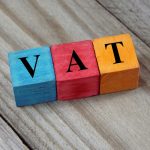The High Income Child Benefit Charge (HICBC) was introduced in January 2013. It relates to the clawback of child benefit for those with income in excess of £50,000 per year.
Who does it apply to?
It applies to you if you have income of over £50,000 per annum and either:
- You or your partner receive child benefit; or
- Someone else receives child benefit for a child living with you and they contribute at least an equal amount toward the child’s upkeep.
It does not matter if the child living with you is not your own child.
What happens if I am affected?
- If you income is more than £60,000 and you/your partner claim child benefit – repay the full amount of the child benefit.
- If your income is between £50,000 and £60,000 – a proportion of the child benefit will be clawed back on a pro-rated basis. So, if your income is £55,000, half of the child benefit will be clawed back.
The HICBC is clawed back through your self-assessment tax return. If you do not already complete a tax return you will need to register with HMRC.
What counts as income?
To determine whether you are over the threshold you need to work out your ‘adjusted net income’.
This is your total taxable income before taking into account personal allowances and after being adjusted for gift aid donations and pension contributions (not paid through your salary).
Total taxable income includes income from sources such as employment, self-employment, pensions, rent, interest and dividends.
HMRC has a useful calculator to help you calculate your adjusted net income (see link below).
What does partner mean?
Partner means someone who you are not permanently separated from who you are married to, in a civil partnership with or living with as if you were. It therefore does not include someone who is simply a lodger.
Who pays the charge?
The HICBC is included on the highest earner’s tax return regardless of whether they receive the child benefit.
What if you move in with a new partner who claims child benefit?
You will have to pay the tax charge if your income is more than £50,000 and higher than your new partner’s income.
Example
Stephen and Julia have two children and Julia claims child benefit. Stephen’s adjusted net income is £60,000 per year and Julia’s is £55,000. On 6 October, they separate and Julia moves in with Tim who has an adjusted net income of £80,000. Who should claim the HICBC on their tax return?
From 6 April to 5 October Stephen would have to include the HICBC on his tax return as he was the partner of someone receiving child benefit and the higher earner. From 6 October, onward Tim would need to include the HICBC on his tax return as he will be the partner of someone receiving child benefit and the higher earner. This is the case even though they are not his children.
If I do not want to pay the HICBC should I just stop claiming child benefit?
You can continue to claim child benefit and repay it through your tax return if your income exceeds £50,000. This is particularly useful if your income is likely to fluctuate below the £50,000 level some years.
Alternatively, you can stop receiving it therefore there will not be any clawback. However, you should ensure that you continue to claim child benefit but just opt out of receiving payments. This means that you will not lose out on the associated benefits.
What is the difference between simply not claiming child benefit and opting out of receiving it?
You will not be entitled to National Insurance credits if you do not claim child benefit. This is particularly important if one of you does not work as you might find that you will receive a reduced state pension when you retire. By opting out of receiving the child benefit you can claim National Insurance credits when you claim child benefit for a child under 12.
In addition, your child will not automatically be issued with a National Insurance number when they reach 15 years and 9 months. If they want to get a job, open a bank account or get a student loan they will need to apply for a National Insurance number.
Links









